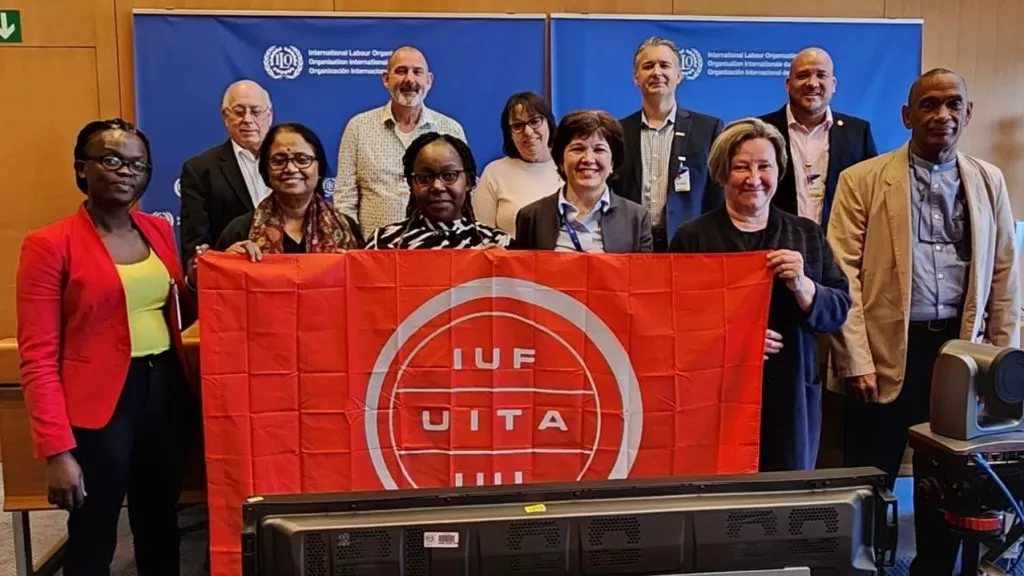The IUF has welcomed the adoption by the ILO Governing Body of decent work guidelines for the agricultural sector. The Guidelines were negotiated earlier in the year by a team of experts including 8 worker representatives nominated by the IUF from across the regions.
While non-binding, the Guidelines draw their principles from international labour standards and other key ILO documents and specify the principles and processes needed to promote decent work in agriculture. The IUF’s AWTG has developed a workplan to challenge governments and companies to use the Guidelines directly in agriculture and in agricultural supply chains. Key takeaways from the new guidelines include:
- In the agricultural sector where workers are often excluded from labour law protections or have lower standards of protection than other workers, the recognition in the guidelines that “freedom of association and the effective recognition of the right to collective bargaining are enabling rights that contribute to the promotion of democracy, efficient governance of labour” has been welcomed by the IUF’s Agricultural Workers trade Group (AWTG)
- With the impact of the climate crisis being felt directly in fields and plantations, the Guidelines give useful guidance on just transition measures including redirecting subsidies and aligning fiscal incentives with sustainability objectives and support for agro-ecology
- 70% of all child labour is in agriculture. The Guidelines call on governments to tackle the underlying causes by introducing regulations that limit practices that encourage child labour like piece-rate wage systems
- The Guidelines comprehensively cover equality issues, including sexual harassment; occupational health and safety; and social protections
